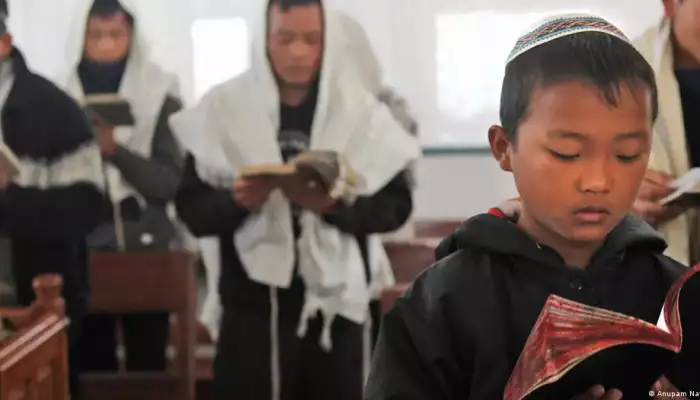
Israel has approved a plan to absorb about 5,800 members of the Bnei Menashe community by 2030, according to a government decision announced Sunday.
The group, an ethnic community from the northeastern states of Mizoram and Manipur in India, is expected to move to the Galilee region of northern Israel in stages. The region has been heavily affected by conflict with Lebanon's Hezbollah militant group, with tens of thousands of residents leaving the area in recent years.
Prime Minister Benjamin Netanyahu called the decision "important and Zionist," saying it would strengthen Israel's north.
What is the plan for India's Bnei Menashe?
A first group of 1,200 people is scheduled to arrive next year. The ministry responsible for their absorption will provide initial financial support, Hebrew language instruction, job guidance, temporary housing and social programs to help newcomers settle.
The government expects to allocate about €23.8 million (about $27.4 million) for the absorption of this initial wave alone. The upcoming arrivals follow roughly 4,000 Bnei Menashe who have already immigrated to Israel over the past two decades.
The plan was jointly coordinated with the Indian government.
Demographic considerations remain central to Israeli state policy, particularly in relation to the broader Israeli-Palestinian conflict. Israel's population stands at about 10.1 million, compared with an estimated 5.5 million in the Palestinian territories.
Who are India's Bnei Menashe?
The Bnei Menashe identify as descendants of the biblical tribe of Manasseh, considered one of the "lost tribes" of Israel. Many had practiced Christianity before returning to Judaism and receiving recognition from Israel's Chief Rabbinate. They observe traditional Jewish practices, celebrate holidays such as Sukkot, and have established synagogues in their communities.
A Kolkata-based genetic study in 2005 reported signs of maternally inherited Near Eastern ancestry among the Bnei Menashe. However, researchers suggested the results were likely explained by centuries of intermarriage with populations from the Near and Middle East.
Israel did not formally endorse Bnei Menashe immigration until the same year, when the then Sephardi Chief Rabbi officially recognized the community as descendants of a lost tribe of Israel.
Galilee, where they are expected to reside, is a historic mountainous region with major cities including Nazareth, Tiberias, and Safed. It borders Lebanon to the north and the Jordan Valley and Sea of Galilee to the east.